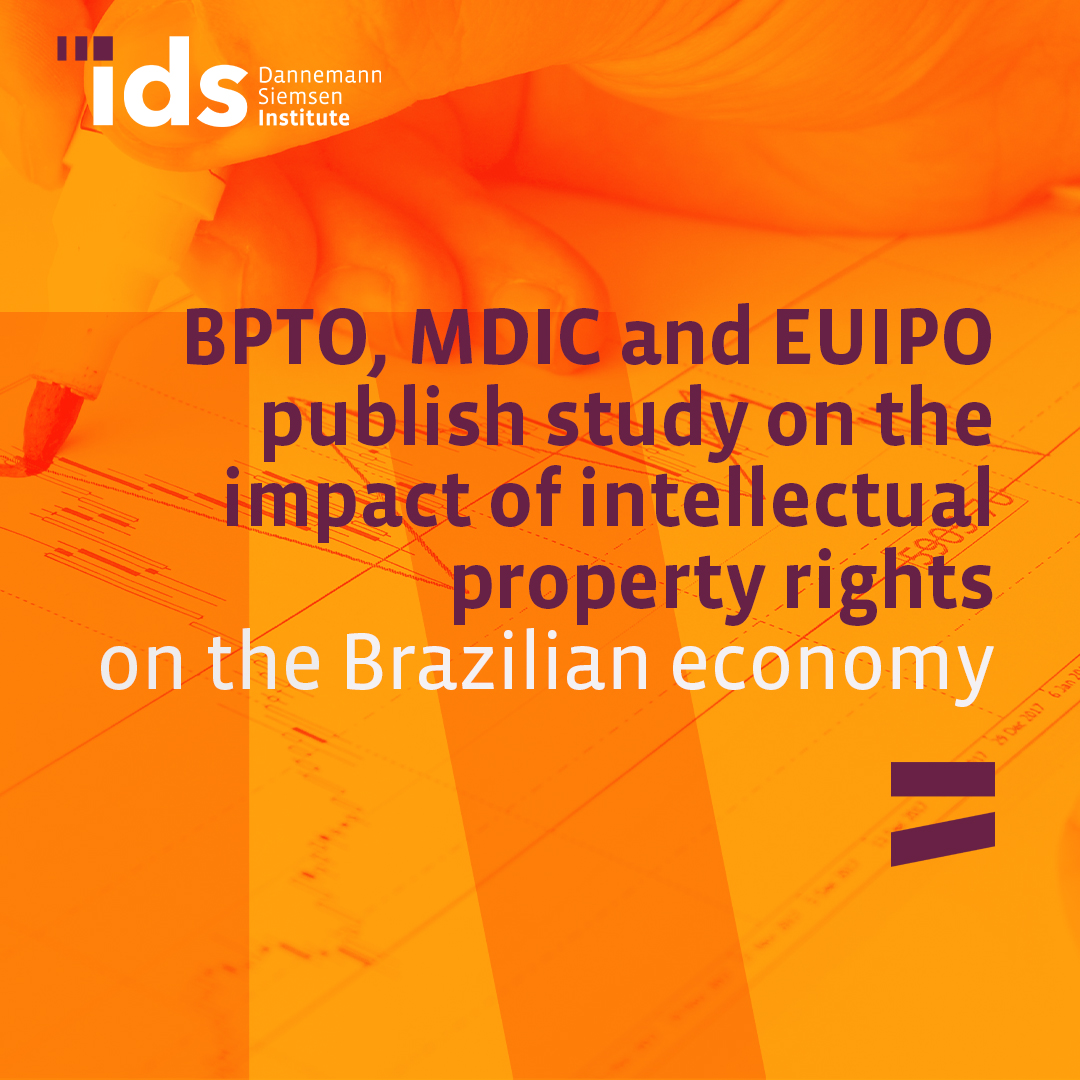11 de fevereiro de 2025
Share
BPTO, MDIC and EUIPO publish study on the impact of intellectual property rights on the Brazilian economy
On February 4, the Brazilian Patent and Trademark Office (BPTO) published the study “The Economic Contribution of Intellectual Property Rights Intensive Industries in Brazil”, in partnership with the European Union Intellectual Property Office (EUIPO) and the Brazilian Ministry of Development, Industry, Trade and Services (MDIC). The aim of the study is to identify the sectors that make intensive use of intellectual property rights (IPR) in Brazil, with an emphasis on green patent technologies, providing information and analysis on the economic importance of these sectors for the country and measuring their contribution to the national economy. It also seeks to compare the results with previous studies conducted in Brazil and other Latin American countries, in order to understand the role of intellectual property in these economies.
The survey identified 461 IPR-intensive sectors in Brazil between 2017 and 2022, with more than half of these sectors (54%) using more than one type of intellectual property right. In total, 134 sectors were classified as patent-intensive, predominantly in the manufacturing industry, including the manufacture of petrochemicals, household appliances, agricultural machinery and aircraft, as well as the research and development sector. The trademark-intensive sectors totaled 357 activities, responsible for 79% of the trademarks registered in the country. These sectors are diverse, covering mainly services and retail, such as intangible asset management, magazine publishing, pay-TV programmers and the manufacture of pharmaceuticals, beverages and cosmetics.
Regarding contributions to the Brazilian economy, it is estimated that between 2017 and 2019, 38.7% of Brazil’s formal jobs were concentrated in IPR-intensive sectors, totaling 20.3 million workers. This figure increased between 2020 and 2022, when 39.7% of formal jobs were generated in these sectors, reaching 22.6 million workers. Trademark-intensive sectors were the main employers, accounting, between 2020 e 2022, for 32.8% of jobs, followed by sectors insensitive to industrial designs (14%), utility models (9.1%) and invention patents (7.1%).
In terms of Brazil’s Gross Domestic Product (GDP), IPR-intensive sectors accounted for 50.2% of this economic indicator between 2020 and 2022, amounting to R$3,760,128 million, which represents an increase of almost 2% compared to the 2017-2019 period. Trademark-intensive sectors contributed 35.1% of GDP between 2020 and 2022, followed by industrial design-intensive sectors (17.4%), utility models (14.8%) and invention patents (12.1%).
IPR-intensive sectors have also played an important role in Brazilian foreign trade. Between 2017 and 2022, approximately 64% of the country’s exports of goods were associated with these sectors. Invention patents accounted for 108,153 million dollars, while utility models accounted for 76,506 million dollars in exports between 2020 and 2022. In the case of imports, over the entire period analyzed, 84% were related to IPR-intensive sectors, especially invention patents and trademarks.
In terms of remuneration, IPR-intensive sectors offered higher wages compared to other sectors of the economy. The average wage premium in these sectors was 4.1% between 2017 and 2019, rising to 4.9% between 2020 and 2022. The sectors with the highest wage premiums were invention patents (58.3%) and copyright (34.1%), reflecting higher productivity and added value per worker.
Finally, the study also specifically analyzed the social and economic benefits for Brazil of intensive sectors focused on green patents, which correspond to technological innovations aimed at environmental sustainability. The sectors intensive in green patents, which are granted through priority processing, accounted for 1.3% of jobs in Brazil between 2017 and 2022. Their contribution to GDP grew from 2.0% in 2017-2019 to 3.7% in 2020-2022. In addition, average wages in these sectors were 30.5% higher than in non-IPR intensive sectors in the 2020-2022 period.
The study can be accessed via the link: Impact of IPRs on the Brazilian economy
Note: For quick release, this English version is provided by automated translation without human review.
